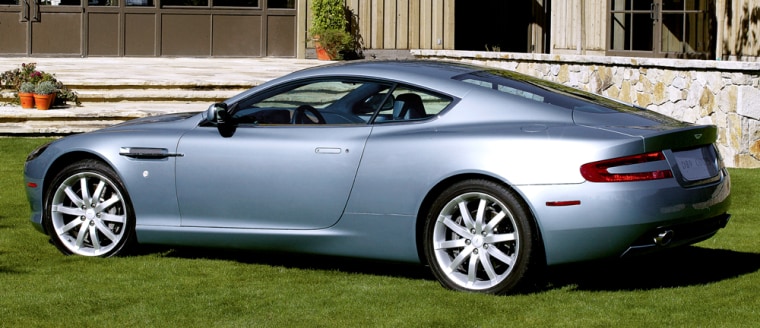Ford Motor Co. on Thursday said it was trying to sell its Aston Martin luxury unit to free up funds to invest in its other brands amid a sharp downturn in sales.
Ford said there was no assurance that its decision to explore strategic options for Aston Martin would result in a sale of the British carmaker.
In Europe, a spokesman for Ford’s luxury brands said potential buyers had already approached the company about a deal. He declined to provide details.
Ford’s portfolio of European-based luxury car brands has fallen short of the automaker’s optimistic projections from several years ago.
The luxury brands lost $162 million in the second quarter, just as a downturn in U.S. sales of trucks and sport utility vehicles hit Ford’s most important market and product line.
“As part of our ongoing strategic review, we have determined that Aston Martin may be an attractive opportunity to raise capital and generate value,” Ford Chairman and Chief Executive Officer Bill Ford said in a statement.
He called Aston Martin “the most logical and capital-smart divestiture choice” since the product line-up and dealer base of the niche automaker remain separate from other Ford brands.
Bill Ford said the automaker had made no decision on whether to sell any of the other luxury brands that form its Premier Automotive Group unit, but he suggested the company was inclined to keep its other nameplates.
“Regarding our other Premier Automotive Group brands, we’ve made no decisions, as our review of strategic alternatives continues. However, we continue to be encouraged by Jaguar’s progress and by the strength and consumer appeal of the Jaguar, Land Rover and Volvo product line-ups,” he said in a statement.
Ford’s U.S. sales, including its luxury brands, dropped almost 10 percent in the first seven months of the year, and the company is readying an accelerated turnaround plan due next month and expected to include faster job cuts and plant closures.
Earlier this month, the automaker said it had hired a former Goldman Sachs Group Inc. investment banker, Kenneth Leet, to explore strategic options for the company.
Analysts have speculated that Ford could be preparing for asset sales, including Jaguar or its financial arm, Ford Motor Credit.
Adding to the deal speculation, Robert Rubin, a member of Citigroup Inc.’s Office of the Chairman and a former U.S. Treasury secretary, resigned from Ford’s board of directors last week.
Ford’s strategic review and Citigroup’s wide relationship with the company may create the appearance of a conflict of interest, Rubin said.
A private equity unit of JPMorgan Chase & Co. and a British group have been among potential buyers interested in some of Ford’s luxury brands, according to people familiar with the matter.
One Equity Partners LLC, a JPMorgan private equity group, is interested in parts of the Premier Auto Group, a person familiar with the matter told Reuters. Former Ford Chief Executive Jacques Nasser is a partner at One Equity Partners.
British construction machinery group JCB has said it is interested in buying Jaguar.
Ford shares have gained 32 percent since late July as traders began to price in the prospect of an accelerated restructuring plan for the automaker, which was overtaken in U.S. sales in July by Toyota Motor Corp.
Despite the recent gains, Ford stock remains down almost 80 percent from its all-time high in April 1999.
Ford, which lost $1.44 billion in the first half of this year, has said it will accelerate a turnaround plan that includes slashing 30,000 jobs and shuttering 12 factories through 2012.
But Ford has faced criticism for not moving faster to shed costs and shore up its product line-up, in contrast to its larger Detroit-based rival, General Motors Corp.
Ford has said it remains committed to returning its North American operations to profitability by 2008.
